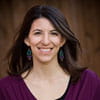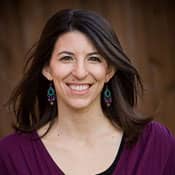 So here's an interesting problem that came up in our community this past week: we switched gospels. In our five-week series on the Life of Jesus, we spent the first four in the Gospel of Luke, and then finished last Sunday in the Gospel of John. Why was this a problem, you ask? Well, because a number of our community members have seminary training. And switching gospels is tricky business when it comes to thematic understanding, emphasis, and narrative purpose.
So here's an interesting problem that came up in our community this past week: we switched gospels. In our five-week series on the Life of Jesus, we spent the first four in the Gospel of Luke, and then finished last Sunday in the Gospel of John. Why was this a problem, you ask? Well, because a number of our community members have seminary training. And switching gospels is tricky business when it comes to thematic understanding, emphasis, and narrative purpose.
Luke's Jesus is not exactly the same as John's Jesus, and about a fifth of my congregation knows that just as well as I do. So switching from Luke to John brought up all kinds of discussion for us this past week. Before we could get to our story (the wedding at Cana) at Teaching Team, we first needed to address all the concerns of switching pitchers in the ninth inning. It's potentially a game-changer, because the pitchers don't throw the same.
Luke's Jesus interacts with others in a highly social way, while John's Jesus spends a bit more time directing people as King of the Cosmos. This is to speak in broad strokes, of course, but nonetheless it brought up a very interesting aspect of sermon preparation in a community of well-trained theologians. What do you do when the rules of academic biblical study are at tension with the practices of pastoral care and preaching? More to our point, the question was: are we allowed to make John's Jesus a little more like Luke's Jesus? Are we allowed to read John 2 in a narrative way, even though for John this story is less narrative and more a directive, a "sign" describing who Jesus has been since the beginning of the world? What liberties are granted us in the practice of preaching, and is there a line when we've crossed over from improvisation to revision?
Personally, I tend to be far more playful in my approach. If scripture is living and active, then it has the capacity to strike us afresh, to hit us from endless angles, to evoke in us a world of responses. And I'm completely at ease in accepting the liberty that brings as I read it and think about it in relation to the community I pastor. My response to the wedding at Cana story in the context of our current series was a richly human one, one that longed to be at a wedding feast with the One who knows how to make life abundant and good. But this is not, as the dear academics in our pews and couches would tell you, what scholars believe John likely thought about the event. How do we cherish the liberty of a living and active story while also honoring the scholarship and devotion with which academics have studied it?
I'm certainly not able to answer that question fully, though I imagine we will, as a community, have ample opportunity to attempt it. For this week, it came about in something like a dance; a reverent bow at the beginning to acknowledge our new dancing partner John, and to respect the way he hears the song, while at the same time feeling confident enough in the song we've been hearing for the past four weeks to take some intentioned steps of our own. And perhaps that's the closest thing there is to a key: not pitting one against the other, but encouraging a conversation where both have room to move.
3/2/2011 5:00:00 AM





